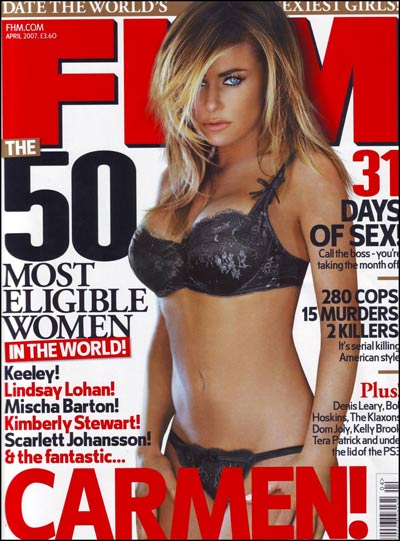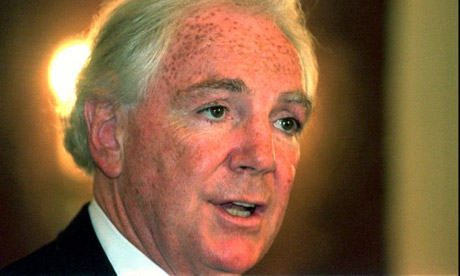Start with a word that newspapers shun: complexity. Then deal in global statistics as collated each year by the World Association of Newspapers (WAN). So, in 2008, international paid-for newspaper circulation rose by 1.3%. That's an 8.8% rise over five years (13% if you count free newspapers). Africa was 6.9% up on 2007, Asia almost 3%. Of course there were drops elsewhere as internet penetration and the credit crunch took their toll: 1.8% in Europe, 3.7% in North America. But 1.9 billion people read a newspaper every day; print reaches 41% more adults than the web.
Separately, much closer to home, the National Readership Survey (a kind of giant opinion poll) shows some nationals - the FT, Guardian, Times, Observer - actually gaining readers in the year to March, the FT up 15%, the Times 6%, the Guardian 3% and the Observer, Sunday's only rising star, 2%.
So why all the universal crisis talk, the gathering despair, asks Gavin O'Reilly, current president of WAN and chief executive of the Independent group. Because too many press people can't see "beyond the simple rhetoric and merely join the chorus that the future is online, online, online, almost to the exclusion of everything else", he says. "It's a mistake. It oversimplified a rather complex issue." And he's dead right - about the "C" word, that is.
Critics say that when WAN includes Asian growth markets, a deluding, out-of-date picture emerges because the US and UK are dominant internet players (Britain has 38% of all Europe's digital revenues). If newspapers here and in the States are struggling, say the critics, that must surely presage the future - which the rest of the world will catch up with soon enough.
Equally, though, you can turn that logic on its head. Perhaps the US and Britain are less typical than we believe. Suppose that we are the ones out of step. Take a look at the latest Nielsen ratings for American news and current affairs websites: the New York Times down 8%, USA Today up 12%, the Washington Post up 8%. Here's a familiarly mixed picture of the kind we're getting used in the UK as the Telegraph, Guardian (April's champion), Mail and Sun battle it out for unique user dominance month by month.
But, still using Nielsen's US results, examine the average amount of time a unique user stays onsite when he or she drops in. During April, it was 11 minutes for the month. Repeat, 11 minutes for all of April (remembering that the print reading time average for a quality paper is around half-an-hour a day). The New York Times scored 29 minutes and 57 seconds, more then six minutes down on 2008; USA Today recorded 16 minutes and 11 seconds, some four minutes up; the Washington Post, at 10:49, was two minutes down. And the Seattle Post-Intelligencer, this year going web-only, contrived the unlikely feat of losing nearly four minutes on April 2008, when website and print version went together.
Cue those WAN statistics one more time and find that 81% of American online users also say they read a printed paper at least once a week. In sum, for the moment, it's not one or the other: it's both. And transition from one to the other, where it's happening, comes unpredictably and patchily from city to city and country to country. Gurus with web fish to fry sing a different tune, sure enough. Burgeoning tycoons who got their debt mountains wrong (like David Montgomery at Mecom) invoke broken old revenue models. It all seems so obvious boiled down to a ritual sentence or two in some TV script.
But too much "doom and gloom", according to O'Reilly? Absolutely: and perhaps he should look at his own Independent web figures - up 63% in a year - for some added personal cheer. But it's still a melee of hopes, dreams and disappointments out there - and, certainly, too many glib simplicities.
The Westminster gold rush could soon be over
And as the Telegraph revelations swept on through a third week - ironically engulfing a former Telegraph journalist Julie Kirkbride as they passed through Bromsgrove - the first signs of disquiet began to surface.
Ms Kirkbride herself wrote a poignant piece about child and constituent care for the Times; Joan Smith told Guardian readers how beleaguered her partner - a blameless, nameless Hon Member - felt amid so much foaming contempt; Natascha Engel MP described her stretched, exhausting life in two homes and two worlds for the Indie; and John Prescott did what a lifetime's political brawling had taught him to do: took the fight to self-regulatory Fleet Street in a blog that fell between mercy plea and collar-feeler.
You could sense a tide turning. Enter Newsnight, wondering as ever whether print reporting had gone too far. Enter writers for anyone-but-the-Telegraph getting bored with sitting around late at night rewriting and following up. Enter, slightly off stage, assorted political journalists who live alongside MPs most of the year and sort-of count them as sort-of friends - soiled angels, not demons. So: has the Telegraph gone on too long?
Will Lewis (via his deputy political editor, Robert Winnett) bought a gold mine of public interest stories. He and his team have mined them prodigiously day after day, while - with the egregious exception of Simon Heffer - not making much of a gloating display. Here's news. Don't play convoluted games. Just put it in the paper. There's no better principle for editors to work on, and few better examples of that dictum around.
But news runs out of steam. The finer detail of mundane transgressions might soon be best brought together for website perusal. And the lack of any firm Fee Office rules makes the whole affair too much of a midden. Thus far, most of Fleet Street has done its job and public opinion knows it. But beware the ides of early June, when Esther Rantzen combines with Michael Winner and a cruel silly season begins.
A turn-off for the readers
One reason American journalism may be enduring such bad times is that its staid, old practitioners deserve it. Take this, from Ryan Chittum of the Columbia Journalism Review, complaining about Rupert Murdoch's malign influence on the Wall Street Journal and his ban on "jumps" (which the UK calls "turns": when stories start on page one and end on page 97).
"Jumps are a pain in the neck for readers. The best part about them, though, is that they are just a tool to let part of your readers get more information if they want it." And, of course, to let writers maunder on without bothering to choose what needs to be reported - or need to cut any immortal prose. British research tells editors that when page one turns somewhere else, virtually nobody turns with it. But that's not the way the New York Times or Washington Post works apparently, because (continued on page 46, section 32)
Paying the price of a free for all
There's no such thing as a free lunch or free ride for freesheets. Take the last few days for Metro International, "the world's largest global newspaper" as it styled itself. After closing down Spain at the start of the year, Metro also pulled out of the US and began folding its tents in Italy and Portugal, too. Trading in the first quarter? Net revenue down 25%, net loss up to €15.3m (£13.4m). Bottom-line conclusions: bleak. In part, it's the crunch but the Swedes were suffering long before that. At root, it's just competition and other frees starting up in foreign fields and ruining the prospect of anyone making money. It's the old London Lite and Murdoch Heavy recipe again. Put two peas in this pod and you're soup.
• Almost 20 years ago, Helmut Schmidt, retired chancellor of Germany, dreamed an incredible dream: a translated, brilliantly catholic record of European newspaper and magazine opinion that would allow all the countries of the Union to share debates, arguments and perspectives. Some of us who hailed Helmut's grand idea, and tried to make it work, can finally relax: visit presseurop.eu and see how technology, 10 translators and a little cash from Brussels can produce good, meaty articles for the citizens of 27 countries.
Peter Preston The Observer, Sunday 31 May 2009

Expand this article











